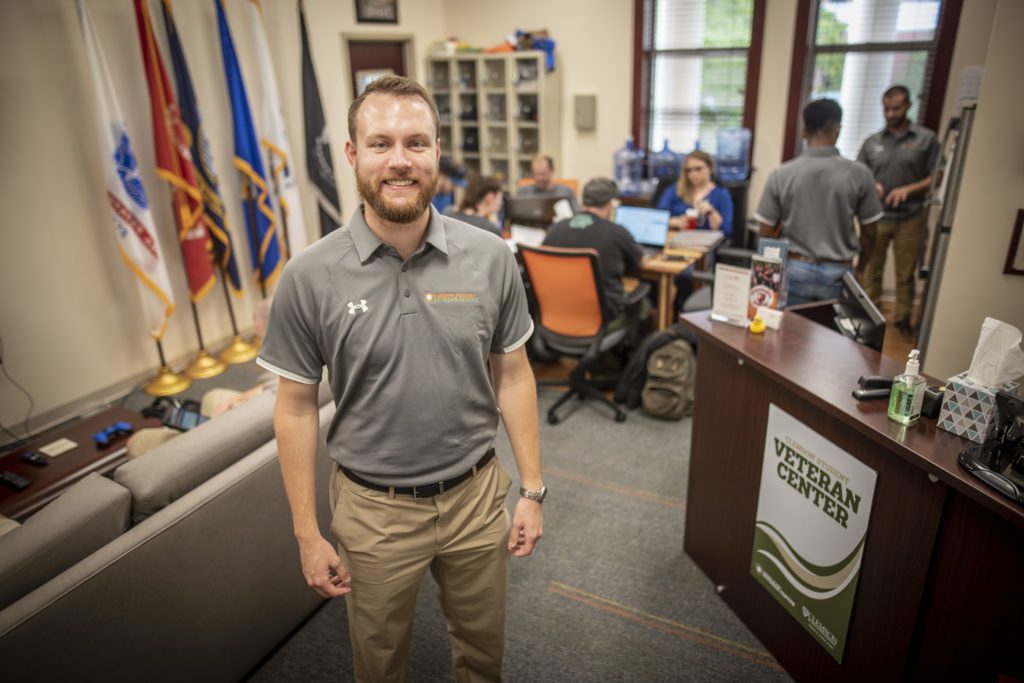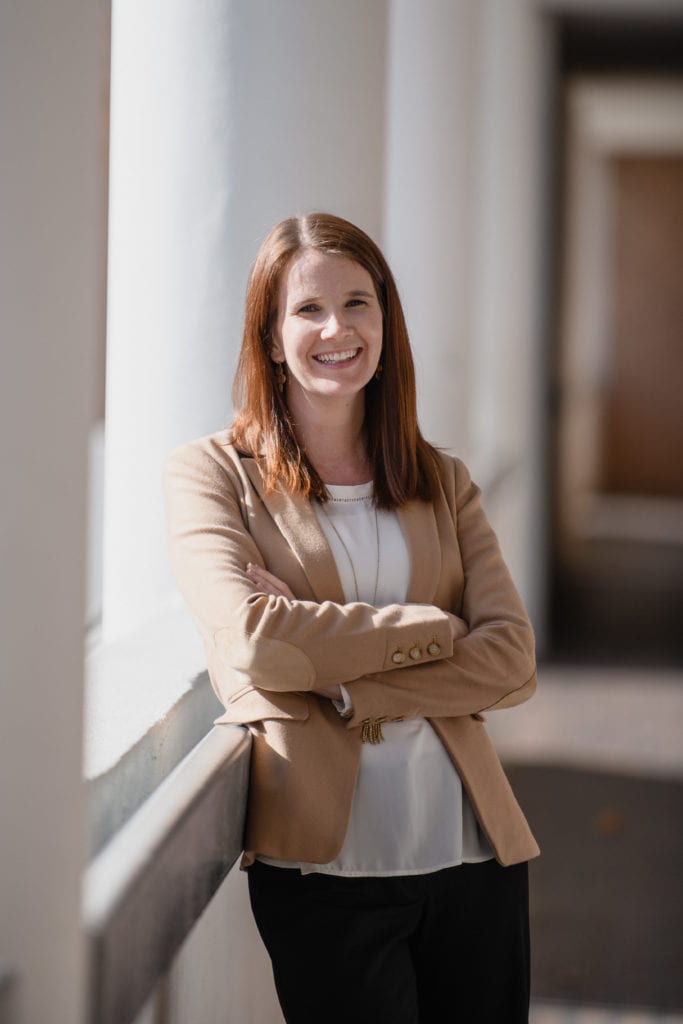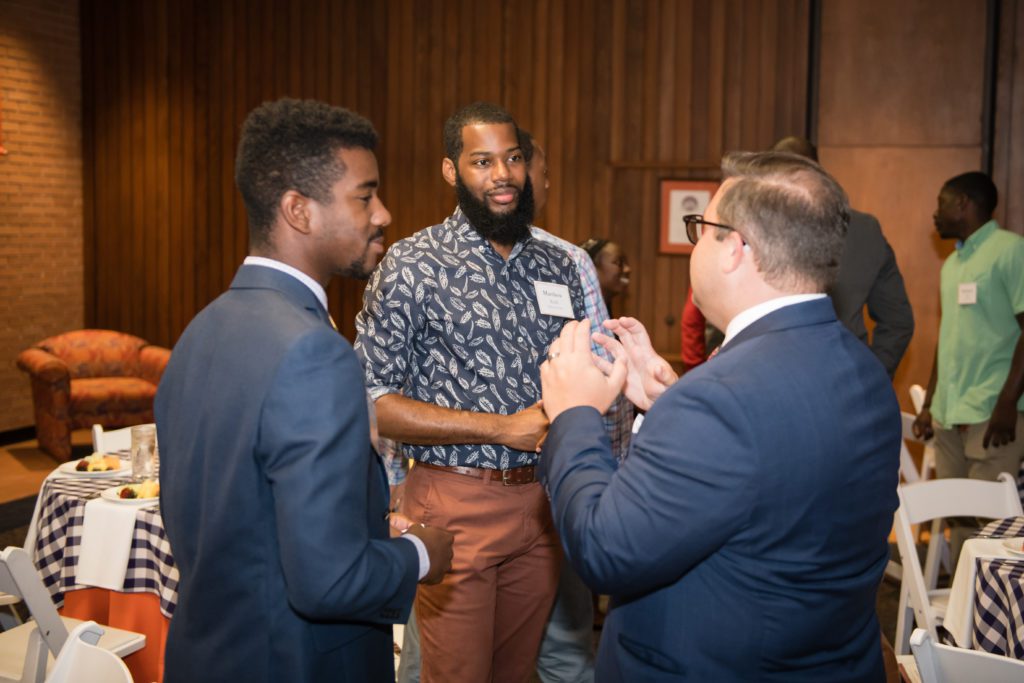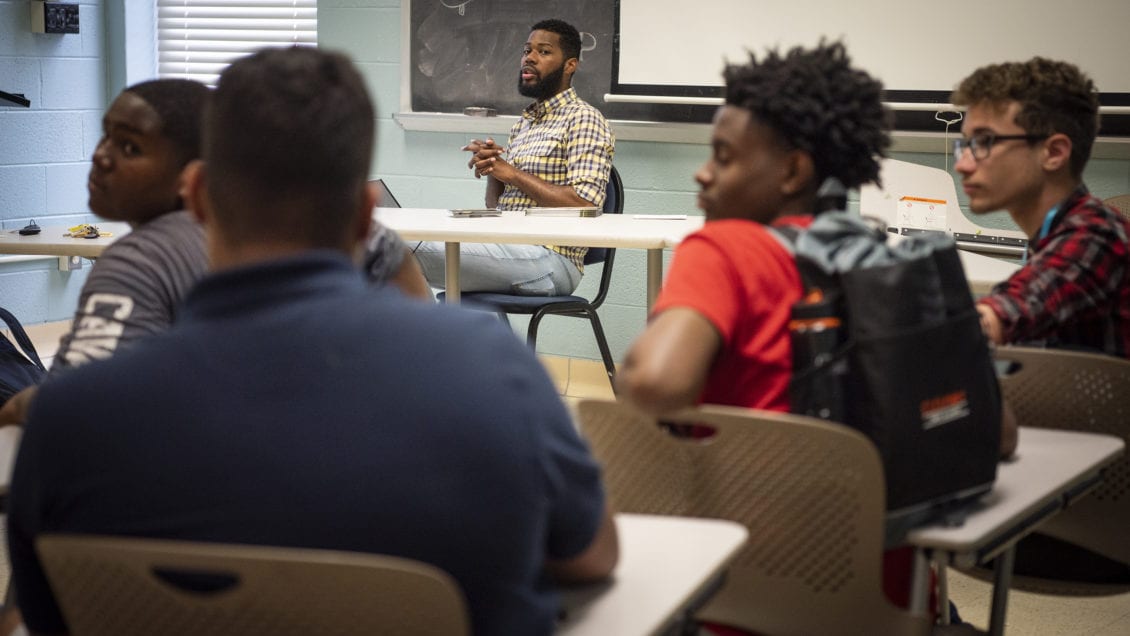The concept of Inclusive Excellence was embraced several years ago as a core theme within the Division of Student Affairs. Original tenets within the core theme were to improve effectiveness of mentoring opportunities, increase staff capacity to serve student populations with varied identities and needs, develop structure to support international and graduate students and to increase positive interactions between students with different identities, backgrounds and viewpoints.
Under the direction of Student Affairs Director of Assessment Kristin Walker-Donnelly, multiple presenters came together Wednesday, March 10 as part of a virtual series known as Experience: IMPACT to explore the work done throughout the division — particularly over the past year — in support of Inclusive Excellence.
“This series stems from feedback we received as part of our staff experience survey in 2019,” Walker-Donnelly said. “We wanted to create more opportunities to gather as a division and this promotes a great sense of professional development among our staff. This is the second year of the series and it’s proven to be a fun way to deliver information in a concise and effective manner, and hopefully it can inspire ideas and action among our colleagues.”
———-
Peyton Bade and Suzi Sciortino are graduate students who work directly with Military and Veteran Engagement. One of the challenges they have identified while Clemson navigates a world of virtual operations due to COVID-19 has been effectively engaging student veterans with others with similar life experiences.
“Last semester, when it came to advising new student veterans, it was difficult,” said Bade, who serves as a graduate assistant under Director of Military and Veteran Engagement Brennan Beck. “I saw it as a significant concern, because we know veterans tend to struggle or even drop out when they don’t feel connected to campus or the community.”

What resulted was a process in which first-semester student veterans were connected to VA work-study students during strategic points in the academic term — the first week of the semester, after mid-terms and so on — to provide more of a “proactive” approach to advising. Bade said anecdotally the program appears to be working, as she’s heard multiple instances of returning veterans going out and meeting new student veterans for coffee to build a sense of community and connect them to institutional resources.
Sciortino, a graduate intern, spearheaded research efforts to determine effective ways to connect current student veterans to alumni veterans to better develop professional and personal skills, expand leadership capacities and engage in networking opportunities. Research showed that 87 percent of alumni veterans surveyed believed a connection to an alumnus as a student would have been beneficial to their experience at Clemson. In addition, 76 percent of those surveyed were interested in participating in a student-to-alumni veteran connection program.
Sciortino said the program is set to roll out in Fall 2021.
“We’re going to focus on connections between student veterans and alumni veterans with similar career fields and identities,” she said. “We want it to be a mutually beneficial, supportive relationship for students and alumni.”
———-
Counseling and Psychological Services (CAPS) offers a wide variety of services along a continuum of intensity for various psychological issues. In recent years, CAPS has added to its inventory through intentional programming for students with marginalized identities and outreach for students in crisis.
Crystal Thornhill coordinates the area of outreach and consultation, working specifically with sexual and racial minorities.
“We try to address the needs for students in these areas, but we’re limited somewhat in terms of capacity,” she said. “We are continually looking to build on it by adding counselors with expertise in this field. We’re always trying to find creative ways to allow them easier access to our services, which we know are in high demand.”
Since increasing its outreach and consultation services, CAPS has collaborated with the Gantt Multicultural Center to focus on enhanced support for LGBTQIA, Black, Latinx and international students and also increased students’ access to psychiatric services through its agreement with the Medical University of South Carolina (MUSC).
———-
Nearly 27 percent of Clemson students are affiliated with a fraternity or sorority on campus. The Office of Fraternity and Sorority Life wanted to create a sustainable model to ensure diversity, inclusion and equity programming is ongoing for such a high volume of students.
Fraternity and Sorority Life centered its approach on peer-to-peer education. Second-year graduate assistant Julia Pacheco-Cole created a survey intentionally aimed at leaders from governing councils and organization chapters.
“These students are more connected with our office and have a birds-eye view on how their specific areas were functioning,” she said. “We got a great response rate, including representation from all four of our governing councils.”
Through the data presented, Pacheco-Cole and professional staff member Trish Robinson structured a program known as Diversity, Equity and Inclusion (DEI) Ambassadors in which selected students receive specialized training on DEI topics and office support for programming and initiatives.
Ten students are part of the current cohort, representing three of the four governing councils. To date, the ambassadors have completed seven hours of educational training — five on social identities and impacts of the Greek Life community and two on LGBTQIA communities (co-presented with the Gantt Multicultural Center). The ambassadors are currently taking the Intercultural Development Inventory (IDI) and will serve as a resource for their respective chapters and councils.
“This group will really spearhead what’s next in terms of diversity, inclusion and equity education for Greek communities at Clemson,” Robinson said.
———-
Robinson hung on to take part in the fourth presentation as well, when she teamed with Kate Radford to provide an update on the Student Affairs Inclusive Excellence plan. The division established a committee a few years ago as part of the overall University plan — spearheaded by Altheia Richardson from the Office of Inclusion and Equity — and Radford and Robinson co-chair the committee for Student Affairs.

The various colleges, divisions and administrative units that make up the collective University community are charged with incorporating their own unique plan within the framework of six strategic pillars: climate and infrastructure, education and training, leadership support and development, recruitment and retention, research and scholarship, and strategic partnerships.
“What’s great for us is that — while it’s been a process to develop parts of our plan — it doesn’t feel outside of the norm of what we want to accomplish in Student Affairs,” Radford said. “We had a team work together over the last couple of years to develop goals within the strategic framework. We want to answer the questions, ‘What is our sphere of influence?’ and ‘How can we make a difference in our area?’”
Radford and Robinson have done it with the help of representatives from nearly every department in Student Affairs. Each goal within the strategic pillars is broken down into objectives and action steps. For example, the committee looks to increase the intercultural competence of divisional leadership to ensure these individuals are prepared to work with a diverse student and staff population. They also are looking to increase the representation of underrepresented populations with Student Affairs alumni and advisory boards.
Overall, the division plan outlines more than 30 goals and 70 objectives to accomplish in a span of six years.
———-
The final presenter was Matthew Kirk, a guest from Inclusion and Equity’s area of College Preparation and Outreach. He was representing the work of Tiger Alliance, a relatively young program that illuminates access and exposes high school students in the state of South Carolina and beyond to the college environment.

Tiger Alliance targets young men looking to realize the dream of attending college. It partners with nine high school across four counties in the Upstate — Anderson, Greenville, Pickens and Spartanburg.
“We are not necessarily a Clemson-connecting program,” Kirk explained. “We take students to college fairs and want them to make the best decision possible for their futures. They see different types of schools and get a feel for what different campuses are like. It helps them learn how to ask the right types of questions and teaches them more about the college experience.”
In addition to college tours, Tiger Alliance takes part in the Men of Color National Summit each year and also holds a summer academy, which is designed to further demonstrate the college experience to students.
“They stay overnight at Clemson in residence halls,” he said. “It gives them the opportunity to live with another student they don’t know, walk around campus, go to classes and engage in partnerships — so they get a great idea of what college is really like. It’s one of the most impactful pieces of our program.”
Kirk said 25 members of the alliance applied to Clemson this cycle and 17 have been admitted to the University, including six in the Bridge program. It represents the largest number of students coming to Clemson through Tiger Alliance. Enrollees from the program are automatically eligible for scholarship assistance as well.

